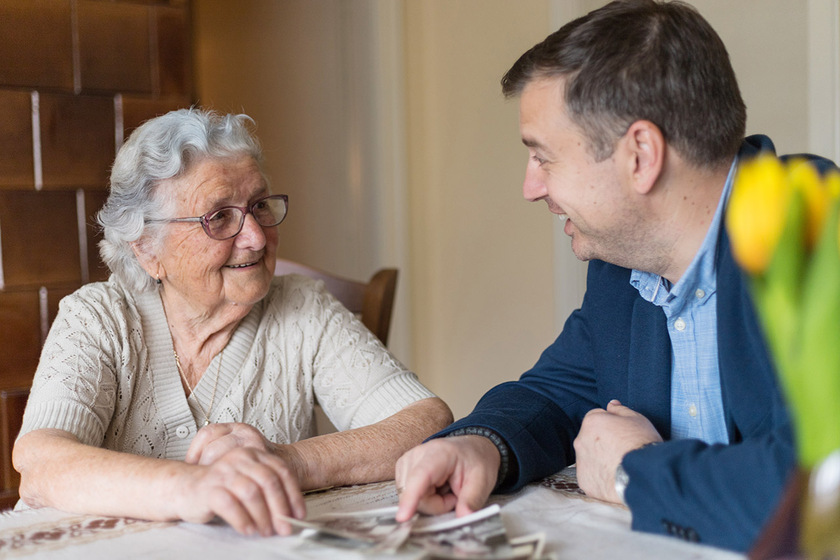Caregivers of older adults frequently inquire about an individual’s ability to perform ADLs and IADLs on their own or with minimal assistance from a professional. ADLs and IADLs refer to the same categories of tasks involved in maintaining one’s daily life. They stand for the fundamental responsibilities that one must take on in order to enjoy a high level of autonomy in one’s own home. If you are caring for an older adult, here is what you need to know about ADLs and IADLs to familiarize yourself with their role in the lives of the elderly in retirement homes in Apex, NC.
ADLs – Activities of Daily Living
Activities of daily living are self-care tasks that we originally learned when we were young. They may also at times be referred to as BADLs – basic activities of daily living. They can include:
- Feeding: Being able to feed food into one’s own mouth.
- Walking: Getting around the house or the outdoors on one’s own.
- Toileting: Getting to and from the toilet, using it the proper way, and cleaning up on one’s own.
- Grooming and Dressing: Choosing clothes according to the occasion, putting them on, and maintaining good personal grooming.
- Transferring: Having the ability to move from one body position to another, including repositioning from the chair to a bed and vice versa or into a wheelchair. Transferring may also include being able to stand up from a chair or bed to grasp a mobility aid like a walker.
- Bathing: Being able to wash one’s face and body in the shower or bath.
For those who are not completely independent with their ADLs, they require assistance so as to be able to function normally every day.
IADLs – Instrumental Activities of Daily Living
Instrumental activities of daily living are self-care tasks that people learn to complete during their teenage years. These tasks are more complicated and require organizational and thinking skills. They can include:
- Managing Transportation: Driving or commuting through other modes of transport.
- Managing Finances: Paying bills and managing financial assets.
- Housekeeping and Home Maintenance: Cleaning kitchens after cooking meals, maintaining a neat and tidy living space, and keeping up with regular home maintenance (pipe leaks, blown bulbs, etc.).
- Grocery Shopping and Meal Preparation: Get their own meal on the table which starts with grocery shopping and is followed by meal preparation and cooking.
- Managing Medications: Eating medications as per the prescribed dosage and on the right schedule.
- Managing Communication: Managing mail and phone calls or other forms of communication.
Importance of ADLs and IADLs in the Lives of the Elderly
The ability to perform ADLs and IADLs is crucial for older adults who wish to continue living alone. Geriatricians evaluate ADLs and IADLs as part of a more comprehensive “function” assessment since difficulties with these activities often indicate underlying issues with a person’s physical and/or mental health. Understanding how to spot functional challenges can aid in the diagnosis and treatment of critical health issues. To ensure that older persons have access to the support they need to compensate for or overcome functional challenges, it is crucial that we detect these issues early on.







